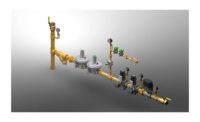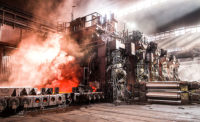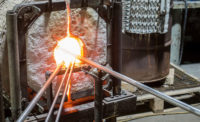Industrial ovens, furnaces, and other combustion systems are dangerous unless the correct safety policies are put into place to mitigate the damage done in different instances of combustion related incidents. From facility damage to employee injury, ensuring that your combustion system is ready to operate safely can save millions of dollars in interrupted business. Taking the time to plan a safety strategy with your employees with the knowledge and tools that they need to succeed has been proven to reduce the risk of injury.
The aging workforce results in new employees who are not as familiar with production processes or facility procedures. It’s important to create a protocol for safety as new employees become familiar with common combustion equipment.
Outdated infrastructure also risks safety in the workplace. Changes in operating regimes place additional loads on equipment, and the integrity of the legacy systems can come into question. Older more rudimentary devices provide limited information about how they are currently operating or overall functionality.
As times change, intelligent safety devices will increasingly optimize performance and limit mishaps by facilitating regulatory compliance.
The following areas are occasionally overlooked when it comes to regular employee training and safety compliance. It is vital that employees are kept up to date just like the machinery used.
Accidents involving gas explosions are often preventable. Many people don’t understand how gas piping repairs differ from other piping repairs and systems. The pre-repair and planning phases of pipe repair must not be overlooked in the national fuel gas code.
The danger lies in the startup of the equipment after the repair has taken place.
Laws passed in a number of states have mandated more inspections and rigorous testing. Boiler safety laws mandate the types of inspections that are needed. Depending on the state, inspectors might request to see safety interlock testing.
Simply because the fuel and combustion equipment safety test was carried out does not mean that the safety work is finished. The strongest safety programs also include a self-auditing analysis for code compliance but also screen for other practices that could be affecting safety. In addition, staying abreast of the technological advances that could improve safety also sets up industrial
Taking preventative measures to ensure that your boiler system maintains safety and stays free of human error is the most important factor in staying safe.
Combustion equipment, by its nature can prove to be dangerous. With every minute or operation, excess particles from daily use in addition to dirt and dust accumulate in the system. This alters the air:fuel ratio and makes the system run less efficiently.
This preventative maintenance can keep problems away from your site, but the skills and training required to do this are considerable. Regular maintenance and updates are required to ensure safety. In addition to 1-2 inspections per year, industrial boilers need to be cared for and observed year round. Don’t let people without years of experience and a second opinion try to tune burners, change out control valves, or replace malfunctioning burner management systems.
If you own and operate combustion equipment, you and your staff need to have some level of operational knowledge to speak to outside contractors. If you don’t possess such detailed knowledge, it is important to hire the right contractor or trusted business partner with years of experience and certifications.



